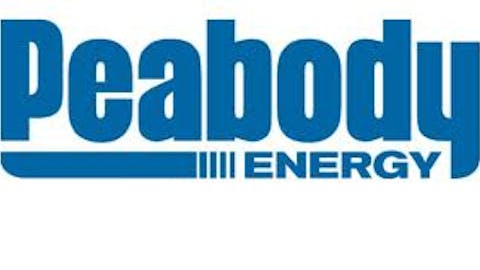 Beleaguered shareholders of this coal miner probably feel like Lee Dorsey in the classic 1966 song “Working in the Coal Mine”:
Beleaguered shareholders of this coal miner probably feel like Lee Dorsey in the classic 1966 song “Working in the Coal Mine”:
“Lord! I’m so tired! How long can this go on?”
That’s a good question. It’s been a wild ride for Walter Energy, Inc. (NYSE:WLT) over the past seven years.

The share price is lower than it was during the apex of the financial crisis. But while there was a massive sell-off of all types of assets in 2008 and 2009, current conditions seem much more stable.
So what gives?
The End Of The Supercycle
With explosive economic growth in emerging markets such as the BRIC nations (Brazil, Russia, India and China) has come a rapid escalation in commodity prices based on what has seemed like an insatiable need for raw materials. Commodity producers and investors have enjoyed very good returns. How good? This 10-year chart of the S&P GSCI Commodity Index says it all.

But these days? Not so much.
As the U.S. dollar strengthens, commodity prices (contracts are priced in dollars) soften internationally by sheer market mechanics.
However, the psychological reasons for the downturn stem mainly from the fear of an economic slowdown in the emerging markets (primarily China) and the continued weakness in global demand due to the slow recovery in the U.S. and the persistent malaise in the eurozone economies.
But what does all of this have to do with a coal producer in Birmingham, Ala.? Plenty.
The Other ‘Clean Coal’?
An important input commodity, coal — especially U.S.-produced coal — has seen its price rise and fall violently in recent years. The first part of the 21st century saw thermal coal prices rise nearly fourfold from around $40 per short ton to $140 in 2008, which coincided with the global financial crisis. Since then, prices have settled back to around $55 per short ton.
In the industrialized world, coal is primarily used for two things: as fuel to help generate electricity and to make coke for steel manufacturing.
A large, fast-growing economy such as China uses a lot of coal for both purposes. However, China is also the world’s largest coal producer, with the United States a distant second.
Should a slowdown in China affect what happens to coal domestically? Not really, but federal government regulation can.
Since both Bush administrations and the first Obama administration, the U.S. has had virtually no concrete energy policy. It’s no secret that the current administration is no fan of coal from an environmental standpoint.
Compounding those worries, large power producers have switched en masse to natural gas as a cheap, clean fuel source. Obviously, that doesn’t help prop up prices. So it makes sense that the stocks of domestic coal producers have been beaten up over the past few years.
However, Walter Energy, Inc. (NYSE:WLT) produces primarily high-quality metallurgical coal that is used in steelmaking. Is the market throwing the baby out with the bathwater?
Buried Treasure
The company’s numbers look terrible: negative earnings for 2013 with an analyst consensus of a loss of $1.43 a share; weak Chinese demand (although China is a large coal producer, they produce very little high-quality metallurgical coal); and coking coal prices down 18% to a recent price of around $140.
To give the market even less confidence, Walter Energy, Inc. (NYSE:WLT) recently postponed proposed refinancing of $1.6 billion in term loans, citing market conditions. Most investors wouldn’t touch this idea with a 10-foot pole. But look beneath the surface.
 |
Caption: This overland conveyer transports coal from Walter Energy’s mining operations in Alabama.
Walter Energy, Inc. (NYSE:WLT) is in a fairly simple business: It owns and produces a tangible asset. Conservative estimates put Walter Energy, Inc. (NYSE:WLT)’s tangible book value at around $16 a share. Much of that is tied to the company’s coal reserves (coal in the ground). That wasn’t a big deal when shares were trading north of $100, but with shares staggering around $11.50, it’s a different story — that’s 45% upside. The value is literally buried in the ground. But the story gets better.






